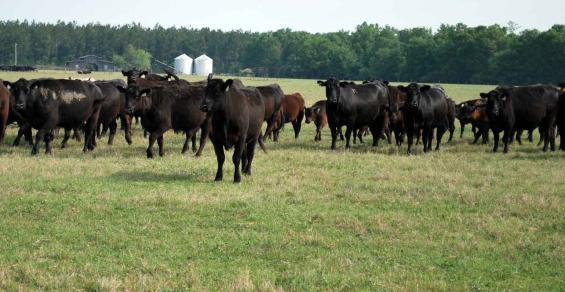Theileria is a tickborne protozoa that infects red and white blood cells causing severe anemia in cattle as well as abortions, stillbirths, weakness, reluctance to walk, and death.
Two cases of a new, potentially dangerous, disease of cattle has been detected in Kentucky, according to Kentucky State Veterinarian Dr. Katie Flynn.
Theileria Orientalis Ikedia, which is a protozoon known to be carried by the Asian Longhorned tick (ALT), has been diagnosed in two beef herds, one in Fleming County and the second in Hart County. In each instance, a beef breed bull fell ill and died. There is no relationship between the herds.
“The Kentucky Department of Agriculture and the Office of the State Veterinarian is working closely with agriculture producers to contain these incidents and protect our herds across the state,” Agriculture Commissioner Ryan Quarles said. “Protecting the health of livestock in the commonwealth is a top priority of the Kentucky Department of Agriculture.”
Theileria is a tickborne protozoa that infects red and white blood cells causing severe anemia in cattle as well as abortions, stillbirths, weakness, reluctance to walk, and death. Physical examination may reveal pale mucus membranes, high fever, and elevated heart and respiratory rates. Theileria can be confused with Anaplasma marginale infections because both cause anemia. A blood test can distinguish the two diseases.
Once an animal is infected with Theileria, it becomes a carrier, which is a source of infection for other cattle in the herd. There is no approved effective treatment or vaccine for the disease, making prevention and biosecurity imperative.
Though a threat to cattle, the disease is not a threat to human health. Humans cannot become sick from contact with affected cattle, and consuming meat from affected cattle is safe provided the meat has been cooked to an appropriate temperature.
The Asian Longhorned Tick (ALT) has been found to be a primary carrier for this disease. The tick has previously been detected in Boone, Metcalfe, Floyd, Martin, Madison, Breathitt, and Perry counties in Kentucky. It is possible that the tick is present and undetected in additional Kentucky counties. The ALT has been found to attach to livestock, wildlife, dogs, cats, birds, and humans. Cattle producers should consider tick control measures to lessen the likelihood of Theileria infections in their cattle herds.
Tick control measures include keeping pastures mowed and cattle restricted from wooded areas. Regular inspection of cattle for ticks and use of acaricides, such as ear tags, pourons, or back rubs, are helpful. Long-acting macrocyclic lactones (ivermectin, moxidectin, eprinomectin) have shown to be effective in tick control in field research trials. Use of clean needles for every injection reduces the spread of bloodborne pathogens. A veterinarian should be notified in the instance of animals showing signs of lethargy or weakness.
In partnership with the University of Kentucky, Tick Laboratory, University of Kentucky Veterinary Diagnostic Laboratory, Murray State University Breathitt Veterinary Center, and Virginia-Maryland College of Veterinary Medicine Diagnostic Laboratory, the Office of the State Veterinarian is coordinating a passive surveillance system of tick and blood samples from cattle with clinical signs to help identify the presence of the Asian Longhorned Tick and Theileria orientalis Ikeda in Kentucky.
The Office of the State Veterinarian has also created an alert flyer for cattle owners and coordinated no cost testing of blood for Theileria. Results are available to producers. Information gathered will be used to create maps that depict the spread of the ALT and Theileria across Kentucky. Farm and ownership information will remain confidential.
Those who want to submit tick samples for identification or cattle blood samples for Theileria testing, can contact Kentucky Deputy State Veterinarian Dr. Kerry Barling at [email protected] or call (502) 782-5921 for more information.




